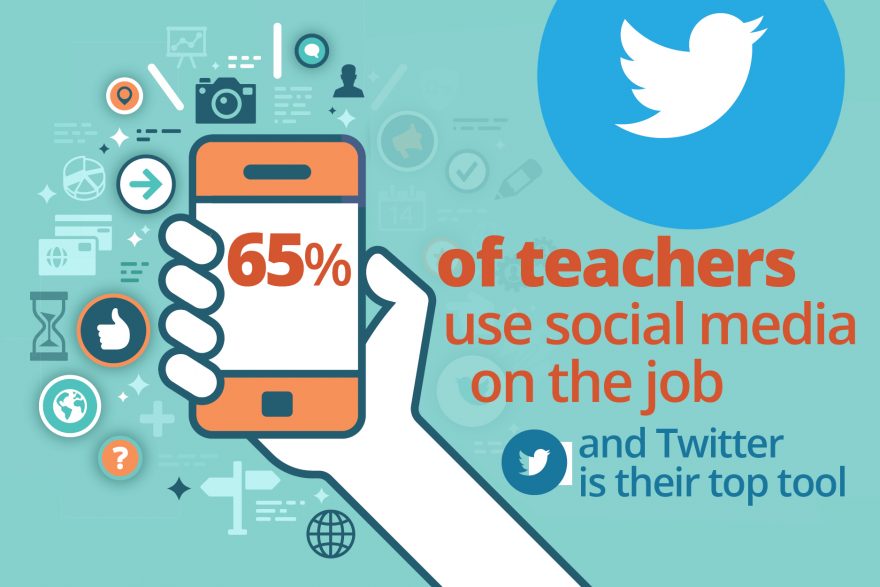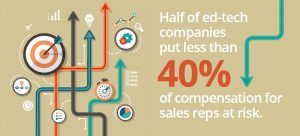What Articles Did Market Brief Readers Like the Most in 2017? Here’s a Look at Our Top 10
Rising Influence of Big Tech Companies, Success Traits of Sales Reps, and Personalized Learning Were Popular

Many of the most popular EdWeek Market Brief stories in 2017 drew from the steady flow of exclusive surveys we conducted of K-12 officials.
Sign up for Market Brief updates
To continue reading this story, please provide your email address. We will send you updates about new content that will interest you.
EdWeek Market Brief covered an ambitious amount of territory in 2017.
We examined the influence of the biggest-name players in the education industry, and new ideas that are reshaping the market. We identified promising strategies, emerging trends, and insights from exclusive survey data collected from K-12 leaders on their buying needs and priorities.
But which stories did our readers value the most?
Following is our list of the most-read articles on EdWeek Market Brief over the past year, most of which were only available to members (Also see our top 10 Marketplace K-12 blog posts for 2017.)
1. Amazon, Apple, Google, and Microsoft Battle for K-12 Market, and Loyalties of Educators
Four gigantic companies—all probably best known for their work outside of education—are having a huge influence on the school market, too, albeit in very different ways. We delved into these tech titans’ strategies, in a story that was paired with a nationally representative survey of K-12 officials on their perceptions of the four companies.
2. Success Traits of Top Ed-Tech Salespeople: McKinsey & Co. Findings
What are the traits of a top-notch ed-tech salesperson in the K-12 market? For answers, my colleague Michele Molnar took an in-depth look at the results of an analysis by the global consulting company McKinsey & Co. The analysis was based on a survey of 44 privately held tech companies, 14 of which were focused on the education market.
3. Teacher Training Is the Top Concern for Districts Implementing Personalized Learning
Everyone knows that “personalized learning”—the idea of tailoring instruction to individual student needs—is a hugely popular concept in K-12. But what are the biggest obstacles K-12 districts face in delivering it? Mike Osher, a survey analyst for the Education Week Research Center, explained the results of an exclusive survey we took of district officials, which found that training teachers to use personalized models topped a list of concerns.
4. The Chan-Zuckerberg Initiative and the Ed-Tech Industry: 5 Insights From Jim Shelton
Education Week Staff Writer Benjamin Herold spoke with the director of education for the Chan Zuckerberg Initiative, Jim Shelton—a former top education official in the Obama administration—about the group’s plans and how they might shape the K-12 market. The limited liability corporation has billions of dollars at its disposal. One of its goals: to bring “personalized learning to scale.”
5. Where Ed-Tech Misses the Mark for Schools Embracing Personalized Learning
EdWeek Market Brief Associate Editor Michele Molnar interviewed leaders of the Kettle-Moraine school system in Wisconsin—which has experimented broadly with individualized learning plans for students—about how companies’ personalized learning products and services often fall short of what schools need.
6. Wanted: Digital Curricula That Motivate Students
What do teachers want from a digital curriculum? Holly Yettick, director of the Education Week Research Center, outlined the results of an exclusive Market Brief survey of K-12 educators that shows that they have a strong demand for tech-delivered materials that engage students.
7. McGraw-Hill ConnectED Secures Strong Foothold in Digital Learning Space, Survey Finds
We asked teachers and administrators around the country which of five digital learning environments—Amazon Whispercast, HMH Player, McGraw-Hill ConnectED, Pearson Revel, or Scholastic e-book subscriptions—they use most frequently. McGraw-Hill’s product topped the list.
8. Scholastic Ranks Highest in Survey About Four Major Education Companies
In a survey of 1,000 teachers and school district leaders, we asked about their perceptions of four major education companies—Houghton Mifflin Harcourt, McGraw-Hill Education, Pearson Education, and Scholastic Education. Scholastic generated the most positive perception among those companies. 
9. Twitter Tops Teachers’ Social Media Lists, But Other Tools High in Rotation, Too
The Education Week Research Center conducted a survey of 750 teachers to determine which social media tools are used most frequently by classroom educators. Teachers mentioned more than 60 different tools, platforms, and apps in all. Twitter ranked highest on the list, but companies trying to connect with educators should know that many other social-media options are in play, too.
10. 11 Things Sales Reps Can Do to Win New School Business
School officials are used to receiving calls, e-mails, and in-person pitches from sales reps. How can sales professionals rise above the pack? For answers, we surveyed district leaders about their ideal interactions with company reps, and what they wanted. A couple hints: Salespeople better do their homework. And it helps if companies have a former educator on staff.
Looking Ahead to 2018
One thing that’s obvious from the list: EdWeek Market Brief readers were hungry for data on the needs and priorities of school leaders and teachers.
We’ll be providing a lot more exclusive survey information in 2018, as well as reporting and analysis on trends and news developments shaping the K-12 market. So tell us what you really need to know to do a better job serving schools, and we’ll keep producing the stories and surveys that will help you achieve that goal.
Images by Getty
